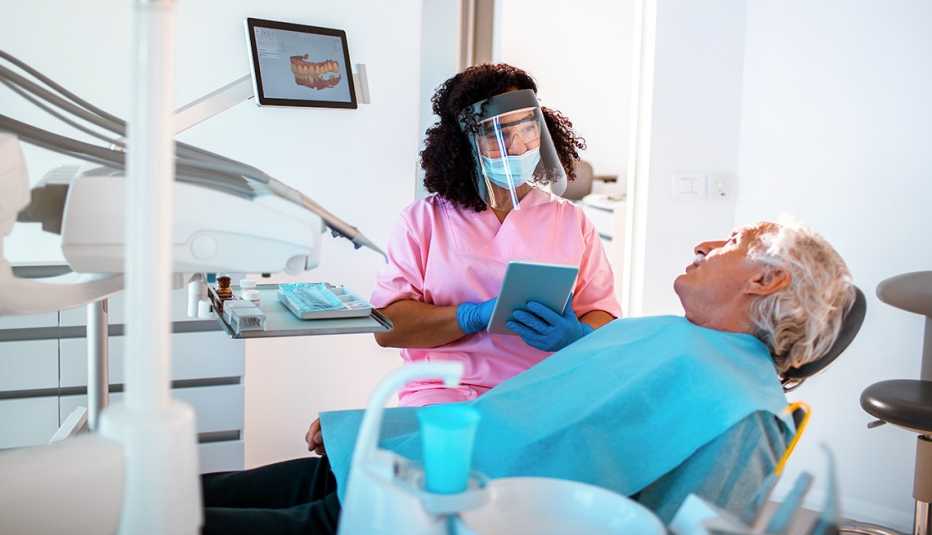Staying Fit


By mid-pandemic, an estimated 41 percent of U.S. adults — about 105 million people — had forgone in-person medical care, be it routine or emergency, according to the Centers for Disease Control and Prevention (CDC). Elective surgeries were mostly shut down, and millions of people simply stayed away from doctors’ offices. Here's what to ask yourself if you, too, avoided care this past year.
The Key Question
Am I taking my important daily medications?


AARP Membership— $12 for your first year when you sign up for Automatic Renewal
Get instant access to members-only products and hundreds of discounts, a free second membership, and a subscription to AARP the Magazine.
About 37 percent of primary care physicians reported that their patients who had chronic conditions were in “noticeably worse health resulting from the pandemic,” according to a November survey. That makes sense: During the early months of COVID, routine health screenings dropped by more than half. One study found that renewal rates on a number of prescription drugs, particularly statins and arthritis medications, decreased significantly in the first few months of lockdown.
Test yourself: The medicine cabinet inventory
This is simple. Do you have an ample supply of all the medicines and supplements your doctor wants you to take? And, more important, are you actually taking them? Generally speaking, if you maintained your regular medications throughout the pandemic, and your conditions, like high blood pressure or type 2 diabetes, are well controlled, you should be fine. But if you didn't or you've put on weight and become more sedentary during the past year, you should reach out to your doctor about options.
A 2020 study of more than 3 million people, median age 72, found that nearly half took more than five daily prescription medications (known as polypharmacy).
Three catch-up medical visits to schedule
- Cancer screenings
Blood Pressure Monitoring
If you use a home blood pressure monitor, next time measure both arms. A review of 24 studies in the journal Hypertension looked at blood pressure tests on 53,000 people. It found that those with systolic readings differing by 5 mm Hg or more between arms had higher rates of cardiovascular death, even in those who had no preexisting heart disease. If you notice a difference, talk to your doctor.
A 2020 survey by the Epic Health Research Network revealed missed screenings nationwide totaling 285,000 for breast cancer, 95,000 for colon and 40,000 for cervical. These represent roughly a two-thirds drop overall for each in the first months of the pandemic. These numbers have rebounded, and now that vaccinations are becoming more widespread, it's time to call your doctor, especially if you're high risk.
However, it is important to note that research has shown that older people can “overscreen” for certain cancers — women over age 65 have aged out of cervical screening, for example, and those ages 74 to 75, for breast and colorectal cancer — but you also want to be smart about it. Talk with your doctor about what you need (and don't), especially if you're high risk.

































































More on Health
How to Get Started With Telemedicine
Ready to make an appointment? We take you through setting one up with your primary care physician or finding a telehealth service
The Doctor Will See You Now: In-Person Visits Slowly Resume
What to expect, how to prepare for a nonurgent appointment